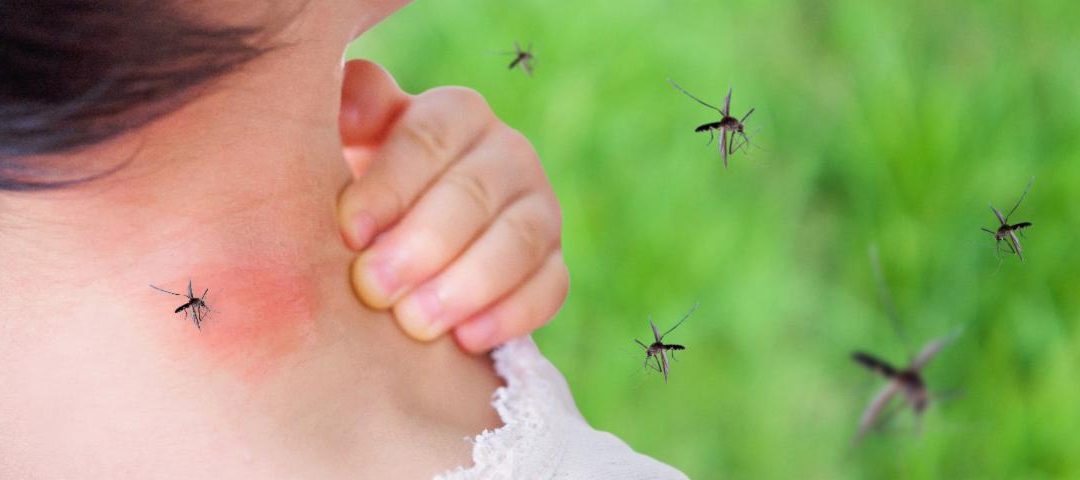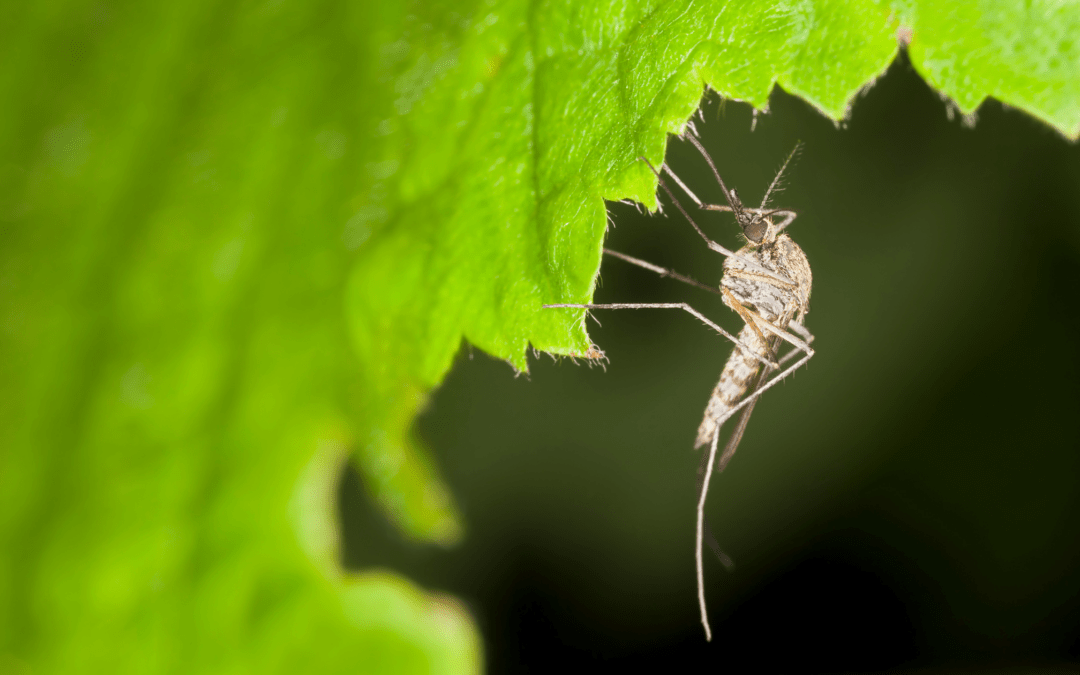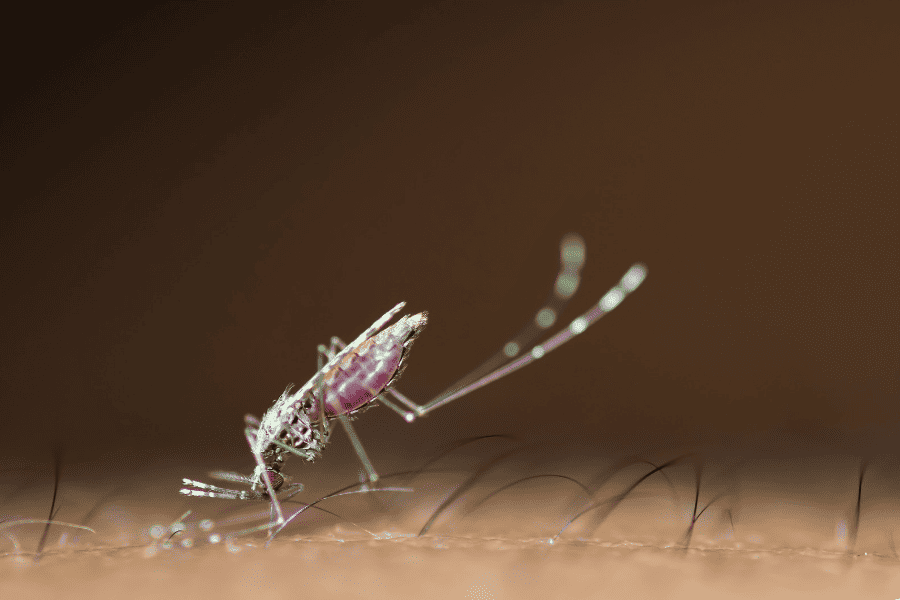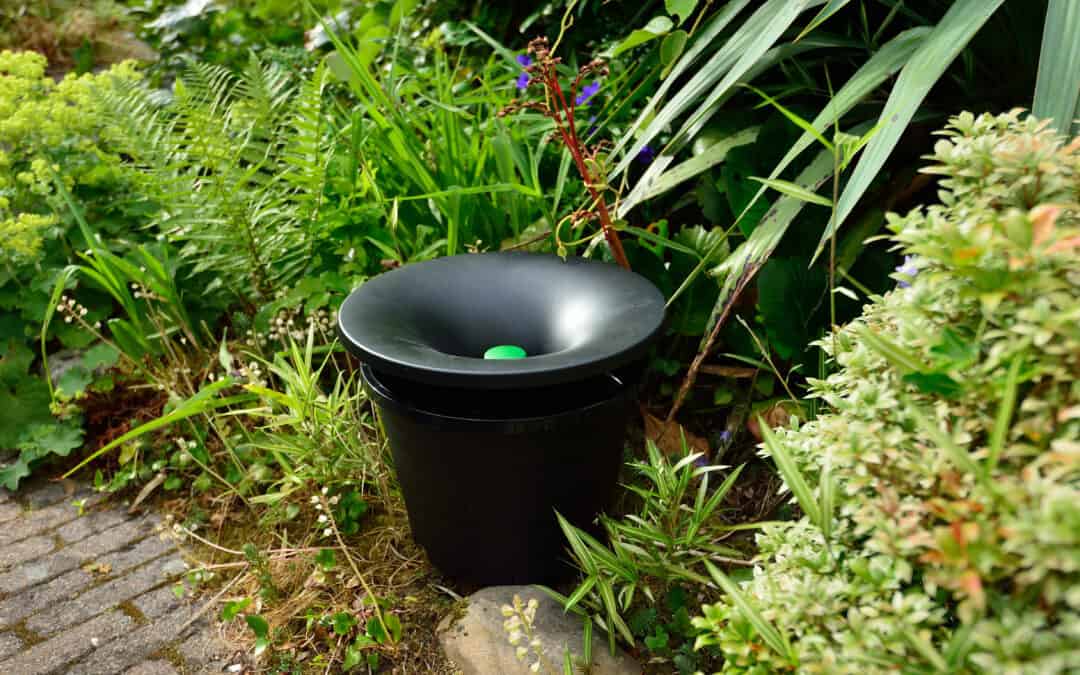READY TO GET STARTED?
REQUEST A FREE ESTIMATE
Fill out the form below or call (888) 466-7849 for a free, no-obligation estimate.

As temperatures rise in Alabama, mosquito season kicks into full gear—especially in the summer. The state’s warm, humid climate creates ideal breeding conditions, and without action, mosquito populations can quickly grow. More than just a nuisance, mosquitoes are known to spread diseases like West Nile Virus and Zika. If you’re looking to reduce mosquito activity around your home, sustainable, eco-conscious methods can help. Below are practical green mosquito control strategies to help keep mosquitoes away this season—without relying on harsh chemicals.
Mosquito activity typically spikes in July due to standing water, warm nights, and rising humidity.
Mosquitoes carry several viruses that can affect humans and pets:
Mosquitoes can make backyards unusable and outdoor gatherings unpleasant, especially during the evenings.
Mosquitoes lay eggs in stagnant water. Removing these sources helps limit breeding:
Certain plants help deter mosquitoes naturally:
These plants provide mosquito control and improve your home’s landscaping.
Mosquito traps attract and capture adult mosquitoes:
Your yard’s design plays a big role in mosquito activity:
Skip the harsh pesticides and opt for more natural alternatives:
Mosquitoes don’t have to take over your outdoor spaces this summer. By removing breeding grounds, enhancing your landscaping, and using natural repellents, you can enjoy more time outside. For added support, reach out to a local pest control provider with expertise in eco-conscious, green mosquito solutions.
Make this mosquito season manageable, starting today.

If you’re living in Atlanta, Georgia, you know that mosquito season is no joke. From late spring through early fall, these buzzing, biting pests can turn your relaxing backyard into an unbearable space. If you find yourself searching for “pest control near me”, you’re not alone—and the good news is, help is right around the corner.
With the right mosquito control strategy and pest control services, you can reclaim your yard and enjoy the warm Georgia evenings without worrying about itchy bites or dangerous diseases. Here’s everything you need to know about dealing with mosquito problems in Atlanta—and how professional pest control can make all the difference.
In Atlanta, mosquito season typically begins as early as March and can last all the way through October, depending on the weather. Mosquitoes thrive in warm, humid conditions, which makes Georgia’s climate ideal for long-lasting mosquito activity.
The season peaks during the hot summer months—June through September—when standing water is more abundant and breeding conditions are perfect. If left untreated, a single backyard can host hundreds, if not thousands, of mosquitoes, creating a serious pest infestation that affects your health, comfort, and quality of life.
Mosquitoes aren’t just annoying; they can be dangerous. In Georgia, mosquitoes are known carriers of diseases like West Nile virus, Eastern Equine Encephalitis, and Zika virus. For families with children or pets, this poses an increased risk that shouldn’t be taken lightly.
Even if you’re only dealing with a mild nuisance, a mosquito problem can quickly escalate. Standing water, overgrown vegetation, and shaded areas provide perfect breeding grounds, turning your yard into a hotbed for pests in a matter of days.
When you search for pest control near me, you’re likely looking for an immediate and effective solution. That’s where professional pest control services step in. A licensed pest control technician can assess the extent of your mosquito problem and create a customized treatment plan tailored to your yard.
Backpack Fogging or Misting: A technician will spray a fine mist around shrubbery, trees, fences, and other mosquito-prone areas to kill adult mosquitoes on contact. This method also provides a residual effect that lasts for weeks.
Larvicide Applications: By treating standing water with safe and effective larvicides, technicians can stop mosquitoes at the source—preventing them from maturing into biting adults.
In2Care® Mosquito Traps: This innovative, eco-friendly trap attracts female mosquitoes and spreads a fungus that kills both larvae and adults. In2Care offers long-term mosquito control with minimal environmental impact.
Ongoing Treatment Plans: Monthly or bi-weekly treatments during mosquito season can prevent future infestations and help you maintain a pest-free yard.
In addition to hiring pest control services, homeowners can take several steps to reduce mosquito populations around the home:
Dump out flowerpots, bird baths, buckets, kiddie pools, and clogged gutters—mosquitoes lay their eggs in stagnant water.
Keep grass trimmed and bushes pruned to eliminate shady resting places for adult mosquitoes.
Mosquitoes are weak fliers. Installing fans on patios or decks can help keep them away during gatherings.
Plants like citronella, lavender, and marigolds are natural deterrents. Add them to your landscaping for extra protection.
Unfiltered or untreated pools are perfect breeding grounds for mosquitoes. Ensure your pool is clean and chemically balanced.
These simple steps, combined with professional pest control, can drastically reduce the number of mosquitoes on your property.
While DIY solutions may offer temporary relief, they rarely address the root of the problem. Partnering with a professional pest control company in Atlanta ensures:
Thorough inspections to identify hidden breeding grounds
Targeted treatments that are safe for your family and pets
Ongoing support to help you prevent future pest problems
Peace of mind knowing your home is protected
When you work with local experts, you benefit from their understanding of Georgia’s unique climate and pest behaviors. They’ll tailor their approach specifically to your needs, ensuring better results and long-term protection.
Don’t let mosquitoes ruin your outdoor space this season. Whether you’re dealing with an active infestation or just want to stay ahead of the problem, a quick search for “pest control near me” will lead you to the local experts who can help.
By investing in mosquito control and year-round pest control services, you can protect your family, enjoy your backyard again, and avoid the dangers that come with ignoring a pest infestation.
Ready to take back your yard from mosquitoes and other pests? Our team of experts in Atlanta, GA is here to help you every step of the way. From custom treatment plans to ongoing support, we’ll ensure your home stays protected all year long.
Don’t wait until mosquito season is in full swing. Call us now or click the link below to request a FREE pest control quote today and enjoy peace of mind all summer long!

Mosquitoes are more than just a nuisance; their bites can pose serious health risks to humans and pets. In Georgia, where warm and humid conditions create an ideal breeding ground for these pests, it’s essential to understand how to protect your family effectively. This blog will detail the risks associated with mosquito bites, tips to prevent them, and the most effective mosquito repellents, including natural options and mosquito-repellent plants.
Mosquito bites can lead to more than just itchy welts. They are vectors for several dangerous diseases, posing significant health risks:
Preventing mosquito bites involves a combination of personal protection and environmental management. Here are some practical tips:
When it comes to mosquito repellents, efficacy and safety are paramount. Here are some of the best options:
DEET is the most widely used active ingredient in mosquito repellents and is highly effective. Products containing 20% to 30% DEET provide long-lasting protection and are safe when used as directed by the Environmental Protection Agency (EPA).
Picaridin is another effective mosquito repellent that provides comparable protection to DEET. It is odorless, non-greasy, and less likely to irritate the skin. Products with 20% picaridin are recommended for the best protection.
OLE is a plant-based repellent recognized by the CDC as an effective alternative to DEET and Picaridin. Products with 30% OLE can provide protection for up to six hours. It’s important to note that OLE should not be used on children under three years old.
For those looking for natural options, several plant-based repellents can help keep mosquitoes at bay:
Citronella oil, derived from lemongrass, is a common natural mosquito repellent. Candles, sprays, and lotions containing citronella can provide short-term protection. However, it’s not as long-lasting as DEET or Picaridin.
Lavender oil not only has a pleasant fragrance but also acts as a natural mosquito repellent. Applying diluted lavender oil to the skin can help deter mosquitoes.
Tea tree oil has antiseptic and anti-inflammatory properties. It can be used as a natural repellent, though it should be diluted before application to avoid skin irritation.
Incorporating mosquito-repellent plants into your garden can provide additional protection. Here are some plants known for their mosquito-repellent properties:
Marigolds contain pyrethrum, a compound used in many insect repellents. Planting marigolds around your home can help keep mosquitoes at bay.
Basil is not only a culinary herb but also a mosquito repellent. The essential oils in basil can deter mosquitoes, making it an excellent choice for patio gardens.
Catnip contains nepetalactone, which is highly effective at repelling mosquitoes. It is ten times more effective than DEET in some studies.
Mosquito control is essential for protecting your family from the health risks associated with mosquito bites. By combining effective mosquito repellents with preventive measures and natural solutions, you can enjoy the outdoors without the constant threat of these pests. For comprehensive mosquito control, consider consulting a professional mosquito control company in Georgia. They can provide tailored solutions to keep your home and yard mosquito-free.

In the warm and humid climate of Georgia, mosquitoes are a common nuisance, particularly during the summer months. While their buzzing may seem harmless, mosquito bites can lead to discomfort and even pose health risks. Understanding how to identify, treat, and prevent these bites is essential for maintaining a safe and enjoyable outdoor experience. In this guide, we’ll delve into everything you need to know about mosquito bites and how to deal with them effectively.
Mosquito bites are typically small, red, and itchy bumps on the skin. They often appear in clusters and can be easily mistaken for other insect bites. However, there are some distinguishing features of bites from mosquitoes that can help you identify them. They usually have a central puncture mark, where the mosquito has inserted its proboscis to draw blood. Additionally, they tend to itch more intensely compared to other insect bites.
Aside from the characteristic red bumps and itching, bites from mosquitoes can sometimes cause more severe reactions in certain individuals. These symptoms may include swelling, soreness, and even blistering around the bite area. In rare cases, individuals may experience allergic reactions to mosquito saliva, leading to symptoms such as hives, difficulty breathing, and swelling of the face or throat. It’s essential to seek medical attention immediately if you experience severe allergic reactions to these bites.
Mosquito bites not only cause discomfort but also carry the risk of transmitting various diseases. In Georgia, mosquitoes can transmit diseases such as West Nile virus, Eastern equine encephalitis, and Zika virus. Additionally, pets are also susceptible to mosquito-borne illnesses, including heartworm disease in dogs. Mosquito control is crucial for protecting both humans and pets from these potentially harmful diseases.
The duration of insect bites can vary depending on individual factors such as skin sensitivity and immune response. In general, mosquito bites typically last for a few days to a week. However, the itching and discomfort can persist for longer periods in some cases. Proper treatment and care can help alleviate symptoms and speed up the healing process.
When it comes to treating bites from mosquitoes, there are several home remedies and over-the-counter options available. Calamine lotion or hydrocortisone cream can help reduce itching and inflammation. Applying a cold compress or ice pack to the affected area can also provide temporary relief. Additionally, antihistamines can help alleviate itching and discomfort caused by the bites. For severe reactions or signs of infection, it’s best to consult a healthcare professional for proper evaluation and treatment.
Prevention is key when it comes to avoiding mosquito bites. Here are some effective strategies to minimize your risk of being bitten:
Mosquito bites are more than just a nuisance—they can pose serious health risks to humans and pets alike. By understanding how to identify, treat, and prevent them, you can enjoy the outdoors safely and comfortably. Remember to take proactive measures to control mosquitoes around your home and minimize your exposure to these pesky insects. If mosquito infestations persist despite your efforts, consider seeking professional assistance from a trusted mosquito control company to address the issue effectively. Stay informed, stay protected, and enjoy a bite-free summer in Georgia!


The southeast is home to states with warm climates, which means that mosquitoes are a common problem. Mosquito season typically begins in March or April and peaks around June to August. The season ends around October, once temperatures begin to drop.
A few factors can impact the sand finish of mosquito season, including the weather, the amount of rainfall, and the presence of standing water. If the weather is wet and warm, then mosquito season can start earlier and last longer.
There are many things you can do to protect yourself from mosquitoes before the season ends. These include:
If you are bitten by a mosquito, it is important to clean the bite area with soap and water. You may also want to apply over-the-counter insect bite cream to help relieve the itching and reduce the urge to scratch at it, causing further irritation.
Here are some additional tips to help you lessen the population of mosquitoes in your home or yard:
If you follow these tips and are still seeing large populations of mosquitoes, give your local mosquito control a call today for a free inspection.

Ah, summertime! The sun is shining, the flowers are blooming, and the mosquitoes are out in full force. Yes, mosquitoes, those pesky insects that enjoy nothing more than buzzing around your head and leaving behind itchy, irritating bites. Not only are mosquito bites annoying, but they can also transmit diseases such as West Nile, Zika, and dengue fever. So, it’s important to prevent mosquito bites by placing preventative measures throughout your property to help eliminate these pests in your yard.
Mosquitoes can be a real nuisance in the summertime, but by taking these steps to prevent bites and eliminate mosquitoes in your yard, you can enjoy your time outdoors without worrying about these annoying insects. If you notice more mosquitoes around your yard than you are comfortable with, consider reaching out to your local pest control company for a free inspection.

Summer is here, and so are mosquitoes. These pesky insects are known for their itchy, irritating bites, but have you ever wondered why mosquitoes bite in the first place? Let’s explore the reasons behind mosquito bites and share some tips for preventing and treating them.
Female mosquitoes are the ones that bite, and they do it to obtain the protein they need to develop their eggs. Mosquitoes are attracted to carbon dioxide and other chemicals that humans and animals emit when they breathe and produce heat and moisture. When a mosquito lands on your skin, it uses its proboscis (a long, needle-like mouthpart) to pierce your skin and suck your blood. As it feeds, it injects saliva into your skin, which can cause an allergic reaction and result in itchiness and swelling.
Preventing mosquito bites is the best way to avoid the discomfort they can cause. Here are some tips for keeping mosquitoes at bay:
If you have concerns about mosquitoes in your area, be sure to consult with your local mosquito control company for a customized mosquito prevention plan!

Mosquitoes are a common problem in the southeast, especially during the spring and summer months. These pests not only cause itchy bites but also carry harmful diseases like Zika virus, West Nile virus, and malaria. In2Care is an effective way to get rid of mosquitoes and keeps them from coming back. Let’s discuss the benefits of using in2Care for your home.
In2Care is an eco-friendly and sustainable mosquito control solution that uses a combination of trapping and a slow-release insecticide to eliminate mosquitoes. The system works by targeting the mosquitoes’ breeding sites, such as standing water, to interrupt their life cycle and prevent them from reproducing. It is a safe and effective way to control mosquito populations in residential areas.
In2Care uses mosquito traps that attract female mosquitoes looking for a place to lay their eggs. When the female mosquito enters the trap, she encounters an insecticide that is harmless to humans but lethal to mosquitoes. Additionally, the trap contains a fungus that infects and eliminates the mosquito, preventing the spreading of diseases.
If you’re looking for an effective way to get rid of mosquitoes in your home, reach out to your local pest control company for a FREE inspection.